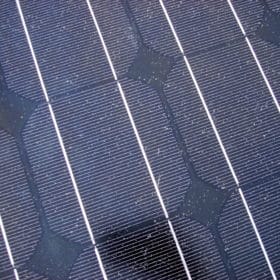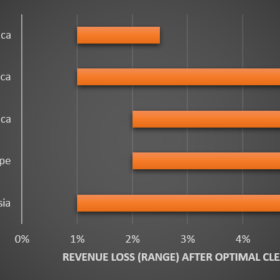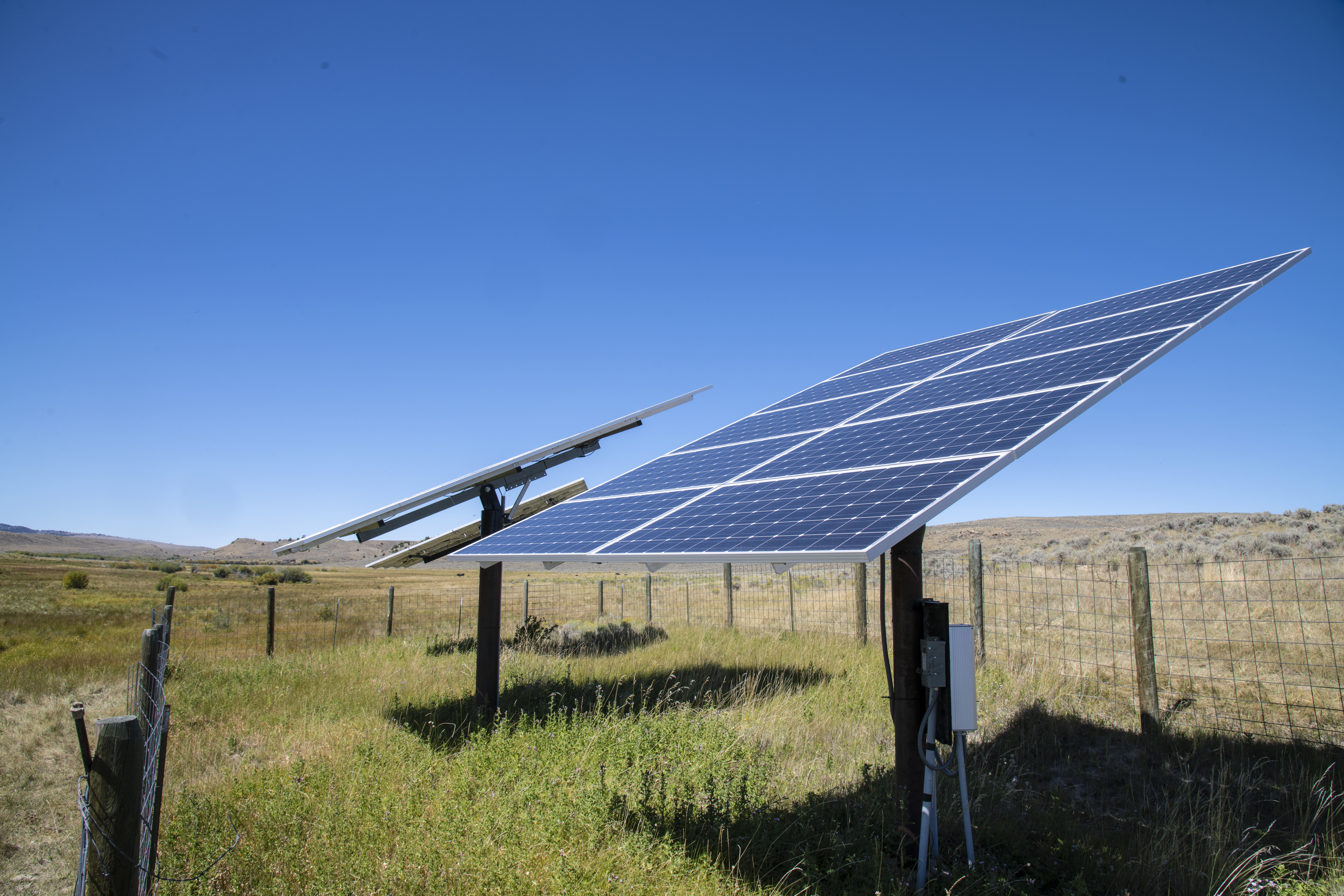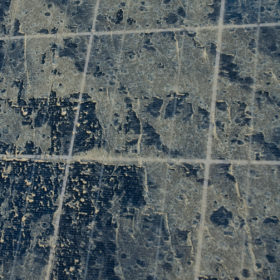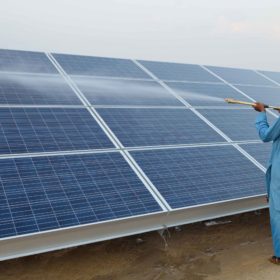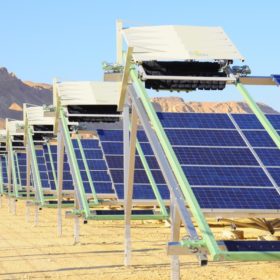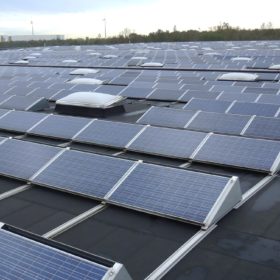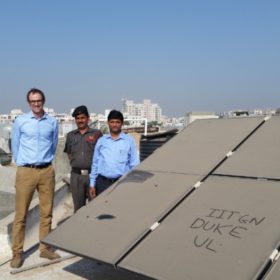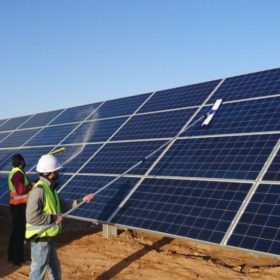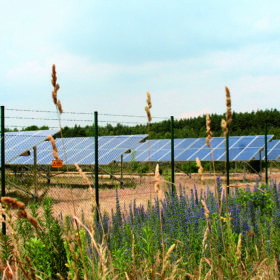Compressed air tech for solar module cleaning, cooling
British scientists have developed an experimental compressed air system for the simultaneous cleaning and cooling of PV modules. The system was built with a compressed-air unit which was made of a compressor, an air tank, and an airflow regulation valve, and a series of nozzles. The technique was tested on a PV system located in northwestern India.
New model to predict PV module cleaning cycles and resulting profits
A group of scientists in Bangladesh has developed a model to determine the optimal cleaning schedule for a PV installation at any location in the globe, requiring only the average insolation and soiling rate for a given site to make the calculation. The study also draws new conclusions regarding the influence of sandstorms and rain on soiling, and aims to be among the first studies to paint a global picture of soiling trends by region.
Self-cleaning tech for small off-grid PV arrays
A U.S.-Pakistan research group has created a new self-cleaning mechanism for standalone PV systems up to 5 kW in size. The system increases power yields by around 35%, while its payback period is estimated at around five years.
New panel cleaning tech based on nano-coating and mechanical vibration
Researchers in Egypt have tested a new solar module cleaning technique for solar arrays in arid regions. They claim that the combination of nano-coatings with vibration mechanisms on the backs of modules can reduce manual cleaning requirements.
Study: High-risk through water use in solar sector
Though lauded at times as a water-saving technology, PV’s concentration in arid and remote regions, in conjunction with inefficient cleaning methods, can exacerbate water scarcity and prompt rising water tariffs for plant operators, according to a new report on Indian PV installations, published by analysts Bridge to India.
Module cleaning firm Ecoppia raises $13m in funding
The Israeli robotic cleaning specialist for the solar industry has completed a new funding round that will support the firm’s global expansion, meet growing demand and boost R&D.
What happens when… modules get dirty?
Troubleshooting series: Steadily declining system yield over the years is to be expected due to module degradation in photovoltaic systems. But in the following case, the yield abruptly dropped – and it happened after several years of operation. In this series based on real cases, pv magazine aims to make assessment of troubleshooting efforts more concrete and stimulate a discussion about troubleshooting efficiency today.
Air pollution contributing to 25% solar panel output reduction, study finds
Accumulation of airborne particles on solar panels may cut energy output by more than 25% in some parts of the world, shows a new study carried out by researchers of Duke University, in cooperation with colleagues at the Indian Institute of Technology-Gandhinagar and the University of Wisconsin at Madison.
Norwegian researchers develop new solar panel cleaning robot
The new robot may make manual cleaning of large-scale solar PV plants a thing of the past.
Milk the Sun: Cleaning of solar parks can be worthwhile
An interim report shows that the yields of the photovoltaic system were up to five per cent higher after cleaning. Overall, the field trial runs until the end of September.
